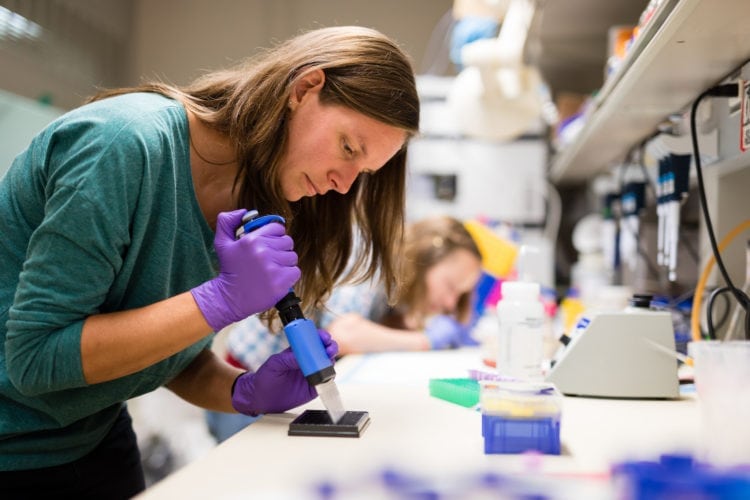
Hannah Baughman, graduate student in Abhi Nath’s lab, is first author on an article looking at molecular chaperones, which may unlock keys in the fight against neurodegenerative diseases like Alzheimer’s, which seem to be caused by buildup of the protein tau. Hannah was also selected as the Hope Barnes Fellow this year.
“I am honored to receive the Hope Barnes Fellowship and blown away to learn what an inspiring woman she was. I am grateful for her family’s support for women in science.”—Hannah Baughman
The proteins have been shown to interact with each other and aggregate into fibrillar structures that are damaging to neurons. Hannah focused on ways certain proteins in neurons—molecular chaperones—work to prevent this aggregation from happening, as part of the native defense against these diseases.
Of the two studied, one, HspB1, acted during the early stages of aggregation, and the other, Hsc70, targeted later stages and was able to prevent tau fibril formation efficiently. This suggests that the two chaperones play complementary roles within neurons and shows how different chaperones work to defend against tau fibril formation.
Hannah is co-mentored by Abhi Nath and Rachel Klevit, used multiple biophysical techniques, including fluorescence in the Nath lab and NMR spectroscopy in the Klevit lab. Hannah’s paper “HspB1 and Hsc70 chaperones engage distinct tau species and have different
inhibitory effects on amyloid formation,” was published in the Journal of Biological Chemistry.
To study with peer researchers like Hannah Baughman, click here for more information about our Graduate Programs in Medicinal Chemistry, Pharmaceutics, Pharmaceutical Outcomes Research and Policy, and Biomedical Regulatory Affairs.